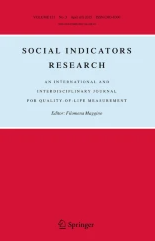
Shen Yang and Alfred M. Wu
Social Indicators Research
Abstract: Economic inequality can have significant political-social impacts, leading to social unrest and other negative consequences. With a high level of economic inequality and a remarkably contentious society, Hong Kong offers an intriguing case for investigating the political consequence of economic inequality. Based on an original random sampling survey in 2017, this study examines the political effects of perceived economic inequality in Hong Kong from three perspectives, namely, its impacts on citizens’ preferences for redistribution, political autonomy, and social protests. This study yields several important findings. Citizens’ perceived economic inequality is positively correlated with support for government redistribution and support for political autonomy. However, perceived economic inequality is not associated with citizens’ propensity to join social protests. We find that political values and citizens’ identities influence their demand for political autonomy and propensity to join protests. Our study thus sheds fresh light on the effect of economic inequality on a developed economy.
About the author: Shen Yang was a HYI Chinese Politics Training Program Visiting Fellow from 2018-19.
